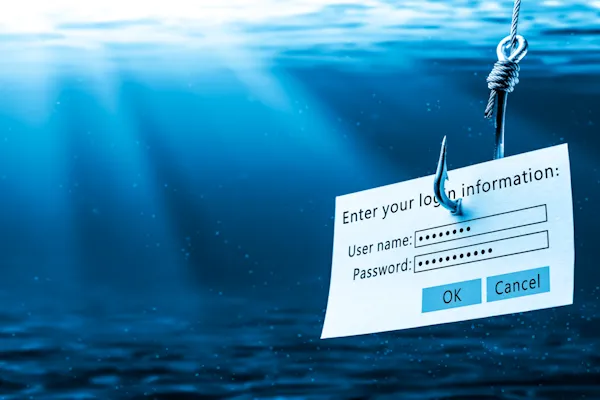
why Phishing Scams Are Smarter Than Ever (And How to Outsmart Them)
Why Phishing Scams Are Smarter Than Ever (And How to Outsmart Them)
Introduction
The New Face of Cybercrime Phishing scams used to be laughably obvious.
You know the ones — a Nigerian prince offering you millions if you just send your bank details.
Today?
Phishing scams are sophisticated, subtle, and often almost impossible to spot at first glance.
In this blog, we’ll explore how phishing attacks have evolved — and what small businesses like yours can do to stay one step ahead.
What is Phishing (and Why It’s Still So Dangerous)?
Phishing is a type of cyberattack where criminals impersonate a trusted source to trick you into handing over sensitive information — like passwords, banking info, or company secrets.
The Catch:
Phishing doesn’t need to break into your systems.
It just needs one click from a human.
Common examples:
Fake invoices from suppliers you actually use
Lookalike login pages for Microsoft 365 or banking portals
Emails from "your boss" asking for urgent transfers
How Phishing Has Evolved
It’s Not Just Emails Anymore Gone are the days when phishing only came by email. Today, you also need to watch out for:
Spear Phishing: Personalized attacks targeting specific individuals (like your finance manager)
Smishing: Phishing via SMS messages
Vishing: Voice calls pretending to be banks, HMRC, or IT support
Social Media Phishing: Fake accounts impersonating clients, vendors, or even your team
Real Story
One of our clients almost fell for a "CEO" WhatsApp message asking them to urgently buy gift cards — all during a live meeting the real CEO was attending!
5 Warning Signs of a Phishing Attack Stay alert for these red flags
Urgency: "Do this NOW or lose access!"
Too Good to Be True: Free money, prizes, or upgrades.
Unusual Sender Address: Check closely — is it really "@systems-secure.com" or "@system-secure.com"?
Weird Formatting or Spelling Errors: Even sophisticated scams often slip here.
Requests for Sensitive Info: Legitimate companies will never ask you to confirm passwords via email.
Why Small Businesses Are Prime Targets You might think, "Why would hackers target me? I’m not a big bank."
But that’s exactly the point.
Small businesses often:
Lack dedicated IT security teams
Have weaker employee training
Work with valuable third-party data
Move quickly and trust easily
Cybercriminals love easy wins — and untrained teams are low-hanging fruit.
How to Outsmart Modern Phishing Scams
1. Train Your Team (Regularly!) Phishing training isn't a one-off event.
Hold quarterly sessions. Test your team with simulated phishing emails.
Reward sharp eyes. Educate without blame.
2. Implement Multi-Factor Authentication (MFA) Even if a password leaks, MFA acts as a second lock.
It’s one of the cheapest, most effective protections you can add today.
3. Use Email Filtering Tools Good email security platforms can block many phishing attempts before they reach your people.
4. Always Verify — Especially for Money Requests If a vendor, client, or boss emails asking for a money transfer — verify it by phone before sending a penny.
5. Stay Updated on Threats Follow cybersecurity news. Phishing scams evolve fast — staying informed can save you thousands.
Real Life Example: A £35,000 Mistake One UK consultancy paid a "trusted supplier" — except the invoice was fake.
The fraudsters had spent weeks studying the company's payment patterns via a compromised email account.
When they spotted a real invoice coming, they simply sent a fake one first.
Moral of the story:
Trust, but verify. Every. Single. Time.
Systems Secure
Helping You Build a Human Firewall At Systems Secure, we help businesses just like yours train their teams, protect their data, and sleep better at night.
We’re not just about selling tools — we’re about building smart, strong habits that protect your business long-term.
Want to find out where your vulnerabilities are? 🚀 Contact Systems Secure today at 07588 455611 or email [email protected] to book your Deep-Dive Security Audit.
